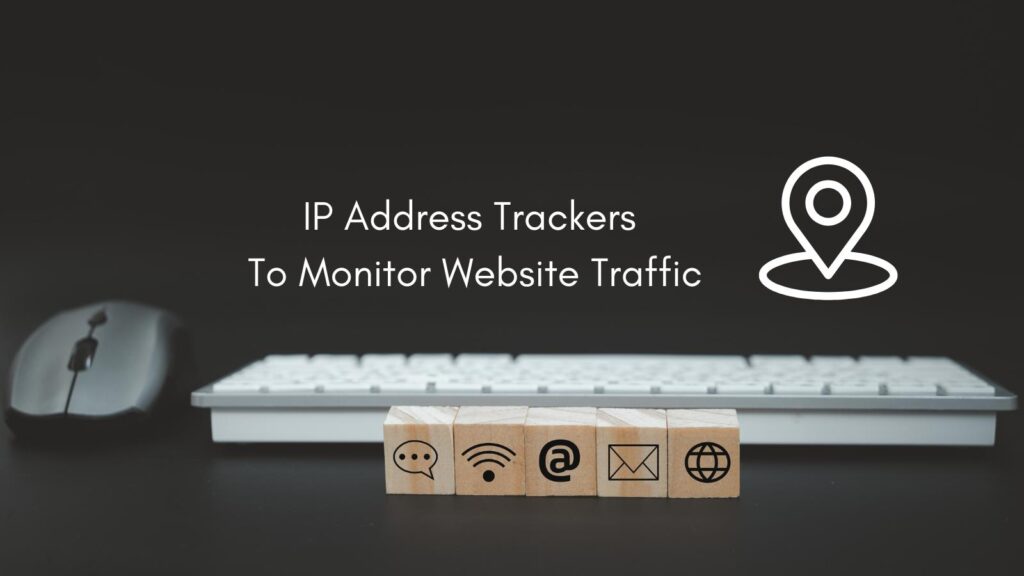Understanding who visits your website, where they come from, and how they interact with your content is crucial for optimizing user experience, enhancing marketing strategies, and securing your online presence. One of the tools at the disposal of webmasters and marketers is the IP address tracker.
Here’s a comprehensive look at what IP address trackers are, how they work, and their benefits for tracking website traffic.
Table of Contents
What is an IP Address Tracker?
An IP address tracker is a software or service that logs and analyzes the unique Internet Protocol (IP) addresses of visitors to your website.
Each device connected to the internet has an IP address, which can be used to derive information like geographic location, internet service provider (ISP), and sometimes even organizational details.

How It Works:
- Data Collection: When a visitor lands on your site, their IP address is logged along with the timestamp and page accessed. This data can be collected via server logs, through embedded JavaScript, or by using specialized tracking services.
- Analysis: The collected IP addresses are then run through databases or APIs that convert the IP number into geographical and other identifying information.
- Reporting: The tracker generates reports or real-time analytics showing visitor patterns, origin, and behavior on the site.
What is an IP Address?
An IP address is like a digital fingerprint for every device connected to the internet. It’s a unique string of numbers, separated by periods, assigned to a device by an Internet Service Provider (ISP).
Think of it as a home address, but for online devices—it tells the network where to send information and where it’s coming from.
There are two main types of IP addresses: IPv4 and IPv6. IPv4 is the older format, consisting of four sets of numbers (e.g., 192.168.1.1). Due to the growing number of devices, IPv6 was introduced, featuring a longer format (e.g., 2001:0db8:85a3:0000:0000:8a2e:0370:7334).
Both serve the same purpose: enabling communication between devices and servers.
When visitors land on your website, their IP address tells you their general location (like country or city) and sometimes even the type of device they’re using. While it doesn’t reveal personal details, it’s enough to gather meaningful traffic insights.
Benefits of Using IP Address Trackers
An IP address tracker is a tool you might not think about every day, but its benefits for website growth are undeniable. These tools go beyond just identifying numbers—they give you actionable insights that can improve your strategy, enhance security, and understand your online audience better.
Let’s see why this matters for website owners.
- Geographic Insights: Knowing where your visitors are from can help tailor content, localize marketing campaigns, or even adjust site language dynamically.
- Security Measures: Tracking IP addresses can aid in identifying and mitigating suspicious activities, like repeated login attempts from an unknown source, which might indicate a security breach or DDoS attack.
- Marketing Optimization: By understanding which companies or countries visit your site, businesses can focus their advertising spend on high-potential areas or industries, thus improving ROI.
- User Experience: Understanding user paths and origins can help in optimizing the website layout, content, and features for different segments of your audience.
- SEO and Content Strategy: Insights from IP tracking can inform content creation by highlighting which regions or industries engage more with certain content, guiding SEO strategies.
Keep in mind that Google Analytics prioritizes user privacy and doesn’t expose specific IP addresses. However, integrating it with other IP tracking tools can give you the best of both worlds: high-level behavioral insights paired with detailed IP tracking data.
Key Features to Look For
When choosing an IP address tracker, prioritize accuracy, speed, and ease of use. Look for features like real-time tracking, detailed location data, and browser compatibility.
Geo-targeting capabilities help pinpoint user regions effectively. Integration options with analytics tools make insights more actionable.
Lastly, prioritize trackers with strong privacy compliance to protect user data and ensure legal use.
- Real-Time Tracking: Immediate insights into who is on your site at any given moment with IPS address trackers.
- Privacy Compliance: Tools should support features like GDPR consent management to ensure legal compliance.
- Detailed Analytics: Beyond just location, look for trackers offering insights into device types, browser information, and visit duration.
- Integration: Compatibility with other analytics tools, CRM systems, or marketing platforms for a holistic view of user interactions.
- User Interface: An intuitive dashboard that makes data actionable without needing extensive IT support.
Implementing IP Address Trackers
To implement any of the IP address trackers, consider the following steps:
- Choose Your Tool: There are numerous IPS address trackers ranging from free, like StatCounter, to paid solutions like Scannerio.io that offer more granular data.
- Installation: Most tools require you to insert a snippet of JavaScript code into your site’s HTML. Services like IP2Map provide a simple copy-paste solution with no registration needed.
- Setup and Configuration: Configure settings like data retention, privacy policies for GDPR compliance, and what data you want to track.
- Monitor and Analyze: Regularly check the analytics to understand trends and make informed decisions.
Different IPS Address Trackers To Choose From
| Tools | Key Features | Ease of Use | Pricing |
| Hubspot | Tracks company IPs, integrates with CRM for lead generation, and analyzes traffic sources. | Beginner Friendly | Free basic plan; premium starts at $50/month. |
| IPinfo.io | Offers detailed geolocation data, ISP information, and API integration for developers. | Developer Focused | Free limit on requests; paid plans start at $49/month. |
| Visitor Que | Specializes in identifying business IPs, generating B2B leads, and analyzing on-site behavior. | Intuitive Dashboard | Free trial; plans start at $39/month. |
| Scannero.io | With advanced encryption, rest assured that only you can access the valuable information on someone’s GPS/IP address. | Web Browser – Easy to use | $49.80/month, watch for specials from time to time. (24 hr. trial for .89) Also a GPS Tracker. |
| Leedfeeder | Tracks IPs to identify companies visiting your site, integrates with CRM tools for outreach. | Easy for Marketers | Free plan available; paid plans start at $79/month. |
| WhatIsMyIpAddress | Simple, minimal tool that shows visitor IP details instantly without excessive features. | Minimalist | Free and ad-supported |
Each of these IPS address tracker tools above has pros and cons, but combining an IP tracking tool with analytics platforms like Google Analytics can give you a complete view of your website traffic.
Choose one that aligns with your goals, whether that’s detailed visitor insights, stronger lead generation, or advanced fraud detection.
Ethical Considerations
While IP tracking offers numerous benefits, it’s imperative to handle the data ethically:
- Privacy: Clearly inform users that their IP is being tracked and ensure compliance with privacy laws.
- Consent: Where necessary, obtain user consent for tracking activities.
- Data Security: Ensure the security of the data you collect to prevent breaches.
Improving Website Security
Website security is a top concern, and IP tracking helps in ways you might not expect. By monitoring incoming IP addresses, you can spot suspicious activity before it becomes a problem.
Let’s say you notice repeated visits from the same IP, and they’re triggering errors or exceeding normal activity levels. That might be a sign of a brute-force attack or bot trying to overwhelm your server.
Armed with this data, you can block the IP—or even set up automatic filters—to keep your site safe.
It doesn’t stop there. IP address trackers can also detect potentially harmful regions or blacklisted IP ranges. Think of it like having a digital bouncer at your virtual door, ensuring only genuine visitors gain access.
In today’s online environment, tracking IPs isn’t just about analytics—it’s also about building a secure foundation for your website. Wouldn’t you rather know who’s trying to sneak in? I sure do.
Conclusion: Using IP Address Trackers
IP address trackers are invaluable for any website looking to enhance its strategic approach to audience engagement, marketing, and security.
By providing a window into the geographical and behavioral patterns of your visitors, these tools empower you to make data-driven decisions that can lead to better website performance and user satisfaction.
These trackers also protect your website security and can help you overcome the bots that visit. However, with great data comes great responsibility; thus, always prioritize user privacy and data protection in your tracking practices.
- 7 Tips to Create Visual Content for Social Media & Your Blog - August 20, 2025
- SEO & Graphic Design: A Website Ranking Guide for 2025 - August 19, 2025
- CRM vs. Marketing Automation: Understanding the Key Differences - August 17, 2025



